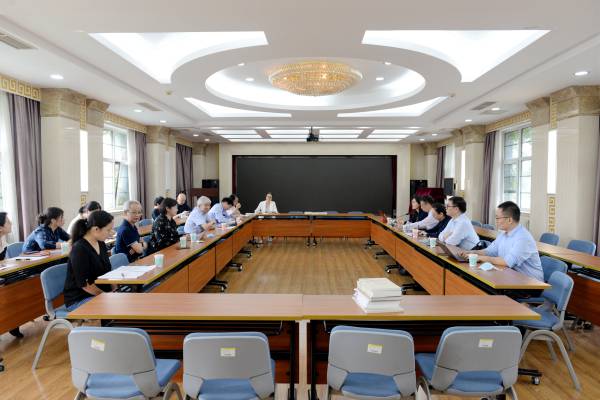The Joint Party Committee of the Editorial Board of Chinese Journal of Law and the Editorial Board of Global Law Review organized a colloquium on Party building on the morning of September 21, 2020. The colloquium was attended by the members of the Joint Party Committee and some Party members of the Editorial Board of China Review of Administration of Justice. At the colloquium, presided over by Professor Feng Jue, Deputy Director of the Editorial Board of Chinese Journal of Law and Secretary of the Joint Party Committee of the Editorial Boards of Chinese Journal of Law and Global Law Review, Professor Zhang Guangxing, Deputy Editor-in-chief of Chinese Journal of Law, introduced the CASS mechanism for the administration of academic journals sponsored by various research institutes under CASS and the special column on “Marxist Law Science” in Chinese Journal of Law; Professor Li Honglei, Editor-in-chief of Global Law Review, introduced the experiences of the Editorial Board of Global Law Review in dealing with ideological issues; Professor Xie Haiding, Deputy Editor-in-chief of Chinese Journal of Law, explained his journal’s concrete understanding of Marxist Law Science; Professor Yao Jia, Director of the Editorial Board of Global Law Review, expressed her opinion on the quality and influence of academic journals and put forward suggestions on the improvement of the academic journal assessment system; Mr. Niu Kai, Executive Editor-in-chief of China Review of Administration of Justice, introduced the history and purposes of his journal; and Ms. Zhong Li, the organization secretary of the Party Committee of China Institute of Applied Jurisprudence of the Supreme People’s Court, introduced the basic situation of the Party Committee and the joint Party building activities organized by the Party Committee of the Institute and the Party committees of some local courts. After the introductions, the participants exchanged opinions on the improvement of the mechanism for ideological work of academic journals and establishment of an effective external review system for academic journals and discussed ways of deepening the communication and cooperation between the editorial boards of the three journals in improving the quality of their editing work and implementing the Party’s requirements on the ideological work.




